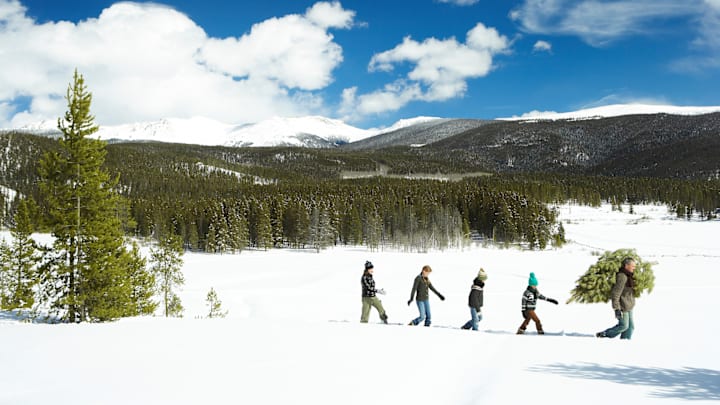There’s nothing wrong with getting your annual holiday evergreen from a Christmas tree farm or retailer (or going the artificial route). But if you’re up for an especially festive adventure, chopping down a tree from a bona fide forest is definitely worth considering—and it might even save you a chunk of change.
While you can’t abscond with a tree from any old woodland, more than 40 U.S. national forests actually encourage people to do just that. As Time Out reports, all you need is a permit, which costs somewhere between $5 and $10.
Access depends on where you live and how far you’re willing to travel. As you can see on the map of participating forests, the overwhelming majority of them are located in the western half of the continental U.S.; nine of them are in California alone. Easterners have only two options nearby: West Virginia’s Monongahela National Forest and Vermont’s Green Mountain National Forest. There’s also a smattering of forests across Minnesota, Wisconsin, and Michigan.
Each forest has its own detailed regulations regarding which trees you can chop down. In Montana’s Lolo National Forest, for example, you can’t take more than three trees, they can’t be more than 12 feet tall, and they can’t be “visible from major roads, within 150 feet of streams or creeks, or in other well-used areas.” The site also lists a few recreational areas where tree-cutting is prohibited. In short, read the fine print on your forest’s permit page before you go traipsing through the woods with an axe in hand.
As long as you follow all the rules, though, you can rest assured that you’re doing well by the environment. “The permit system helps to thin densely populated stands of small-diameter trees,” the U.S. Department of Agriculture said in a press release. “Local forest health experts identify areas that benefit from thinning trees and tend to be the perfect size for Christmas trees. Removing these trees in designated areas helps other trees grow larger and can open areas that provide food for wildlife.”
You can learn more about the program here.
[Time Out]
